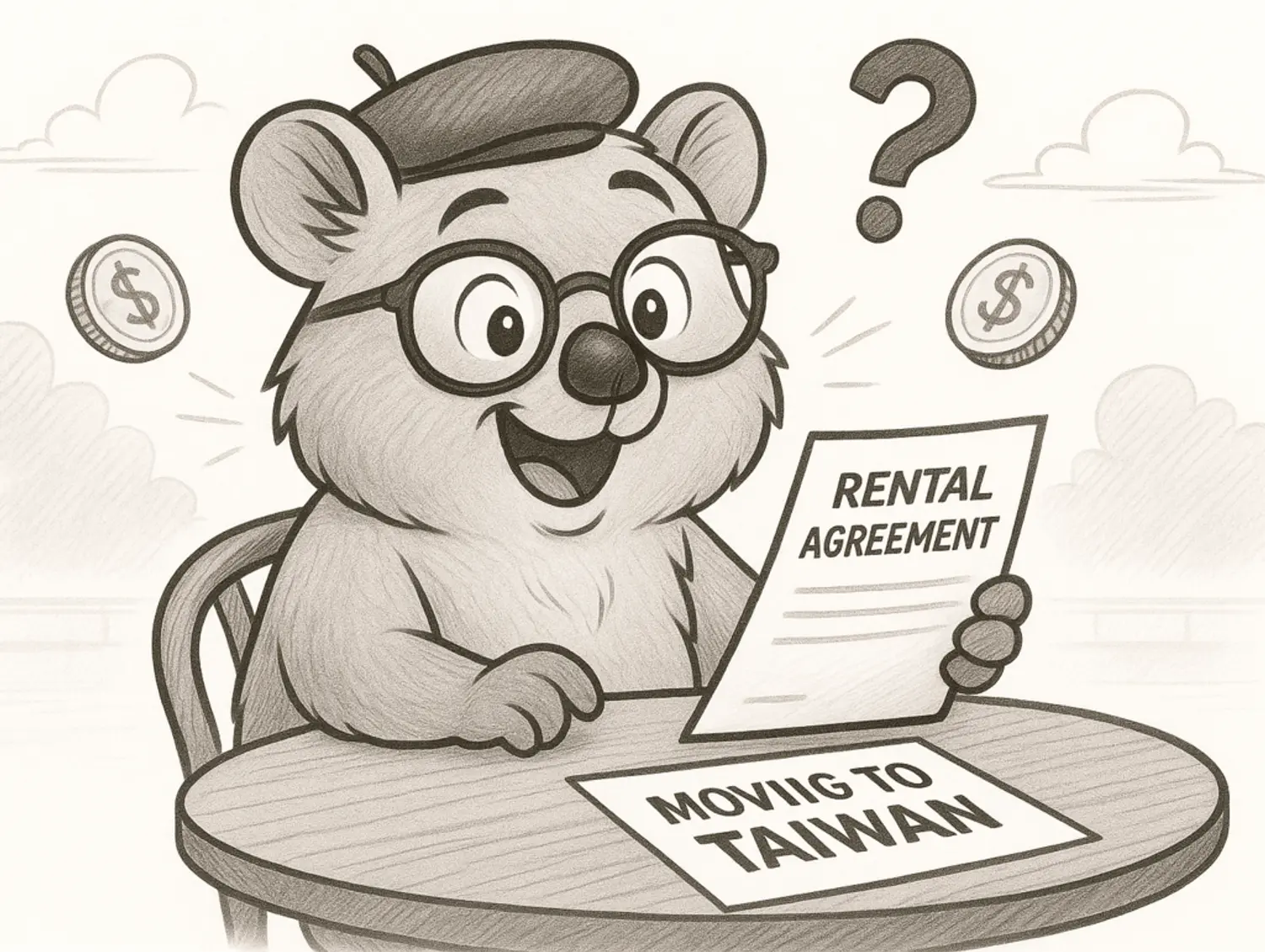
💵 How does the rental deposit system work?
Published 11 months ago
Updated 5 months ago
In Taiwan, the rental deposit system typically involves two main components: a security deposit and the first month's rent. Here’s how it works:
1. Earnest Money
- Definition: Not always required. It’s a commitment fee paid before signing the contract to reserve the property
- Amount: Usually equivalent to part of the rent (often negotiable)
- Conditions: Tenants should ask the landlord to issue a receipt that clearly states:
- Amount paid
- Names and ID numbers of payer and receiver
- Reservation period (commonly 10–15 days, maximum 30 days)
- Whether it will be converted into rent or the security deposit after contract signing
- Tip: If the lease is signed, the earnest money is usually deducted from the rent or deposit
2. Security Deposit
- Amount: Typically 1–2 months’ rent, though in rare cases landlords may ask for 3 months, especially in high-demand areas
- Purpose: To cover damages, unpaid bills, or lease violations
- Refund: Returned at the end of the tenancy if:
- The property is in good condition (normal wear and tear accepted)
- All bills (utilities, internet) are settled
- The keys are returned
- Key deposit: A smaller amount, typically NT$500–2,000, is required for the door keys, refundable upon return of the keys (Note: This practice is not universal and should be clearly stated in the rental contract.)
3. First Month’s Rent
- Paid upfront at the start of the lease
4. Lease Termination Process
- Notice period: Typically 1–2 months’ notice is required (check the contract)
- Inspection: The landlord inspects the property for damages
- Refund: The deposit is returned minus any deductions for repairs, unpaid bills, or cleaning
- Disputes: Mediation can be sought through the Consumer Protection Agency or courts
5. Variations
- Short-term leases: Some landlords may charge a higher deposit or require a guarantor
- Student rentals: Deposits might be lower, but flexibility varies by landlord
- Popular areas (Taipei): Higher demand may lead to stricter terms
Tips
- Always document the property’s condition at move-in (photos, written checklist)
- Review the contract carefully to avoid surprises
- Negotiate terms (deposit amount, interest, refund timelines) before signing